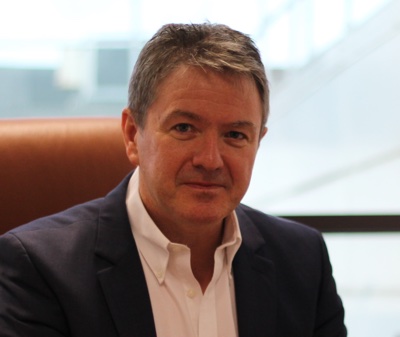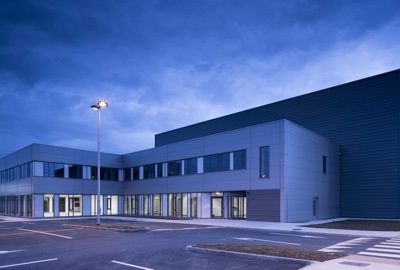Ardmac is an award-winning international specialist construction contractor with almost 40 years’ experience in delivering architectural, workspace and turnkey solutions to cleanroom and controlled environments in the biopharma, micro electronics, medtech and healthcare sectors.
It has provided clean environments for over 35 years, continuously developing products, partnerships and procedures to deliver the best technical and value engineered solutions. It also provides commercial and retail fit-out services.
According to CEO, Ronan Quinn, this dual competence – on the interior and on the technology side – gives the company both agility and a strong, balanced foundation to work collaboratively with clients and provide solutions that fulfil clients’ business needs. The company’s in-house design and engineering team take a process driven approach, ensuring compliance throughout the build.
Building for life science markets
Within the life science sector, the biopharma, medtech and healthcare segments represent around 50% of the company’s overall business.
Ardmac is prepared to work across the entire sector, wherever there is a need for the type of specialist, high-tech environments it can provide. In the medtech sector, this could mean the manufacturing space for a drug delivery device; in the pharma sector, it may be an environment for manufacturing the drug or filling the final delivery device; and on the hospital side, the company can provide such things as operating theatres, pharmacy dispensaries, even biosafety level 3 laboratories.

Ronan Quinn, Ardmac’s CEO
However, the needs of the various sectors differ, a fact that the company is conscious of, particularly when it comes to attitudes to cost. “Medtech companies, for instance, often need to make a certain number of devices to ensure the facility’s financial viability, and this means winning business competitively against other manufacturers. This business reality makes medtech companies more cost-conscious,” says Quinn.
In contrast, the pharma market is driven by validation and obtaining regulatory approval for products. The investment horizon is longer – the often-quoted statistic is that it takes an average of 10 years and a billion dollars to launch a new drug product successfully on the market.
As a result, the way in which Ardmac works with these companies differs. Within the medtech sector, customers tend to be the end-users, while within the pharma sector, the company is typically employed and/or managed by the Engineering, Procurement, Construction Management (EPCM) companies. Sometimes the contract may be with the pharma company but it would be managed by the engineering companies as a trade contractor. Therefore adaptability is key.
Innovation in the cleanroom space
New trends and developments in the life sciences sector – particularly within the pharma and medtech manufacturing space – do affect client needs and subsequently, demand for the services and products that Ardmac provides. For instance, with the rise of orphan drugs, which are produced in very small quantities for small patient populations, companies are increasingly looking to adapt manufacturing environments for multi-product use.
“When a product batch is only run periodically then it makes commercial sense to have the ability to manufacture other products within the same space. Clients increasingly want adaptable cleanrooms,” says Quinn.
It is like a Lego concept — a multi-use design focus with process flexibility
Ardmac is therefore bringing in what it calls second-generation cleanroom products to the market. The first-generation products, that have been around for the past 25 years or so, would tend to be solid, monoblock wall or ceiling panels, which would have come from “cold room-type” manufacturing processes, adapted to suit the GMP requirements. These would still be quite sophisticated products, but the drawback is that they are fairly limited in terms of their adaptability for future needs and capacity for the integration of mechanical and process services.
The second-generation products that the company is introducing, on the other hand, are very adaptable and are based on interchangeable components that make remodelling very easy. For instance, the light fittings or air handling units or ceiling tiles are all exactly the same size, so that one component can be moved to a different location and the room can be up and running very quickly.
“It is like a Lego concept — a multi-use design focus with process flexibility,” says Quinn.
Building Information Modelling (BIM) is another area where the company has been investing for the future. It is the means by which all stakeholders can understand the project through the use of an intelligent 3-D digital model that communicates key project decisions throughout the project lifecycle.As a first line adopter of BIM, Ardmac has engineered a strategic (vs. reactive) approach, with the aim of successfully and sustainably structuring and integrating the products and services into the information needs of the owners, clients, designers, contractors and manufacturers.
Building relationships
A recent project for West Pharmaceutical Services in Dublin is a perfect example of the symbiotic relationship that the company looks to foster with clients. It started working with West Pharmaceutical Services on relatively small projects; firstly on a design and build of a specific cleanroom, and gradually increasing the scope of the collaboration on the basis of how well it delivered.

West Pharmaceutical Services B2 facility
Three years ago, the company managed the extension of West Pharmaceutical’s first plant in Dublin, Ireland. West required additional cleanroom space in that facility, which meant adding an extension on either side of the building. This involved a relatively new scope for Ardmac but the precision in the delivery led to West returning with the next major project; a second facility in Dublin.
Ardmac recently completed the design and build of West Pharmaceutical Services’ new medical device facility in Dublin, providing the handover four weeks early. The 60,000ft2 building includes new cleanrooms, production, warehousing, office support and canteen along with associated site facilities. The expansion is in response to customer demand for medical device manufacturing and represents West’s most recent investment in Ireland.
Headquartered in Dublin, Ardmac has offices in Northern Ireland, Manchester, (UK) and Belgium. The Belgian office was set up initially to serve GSK but it has since broadened its clientele to companies such as Janssen and Teva, as well as Merck in the Netherlands. It also has some ongoing data centre projects in the Netherlands.
Quinn says the company likes to travel with clients with whom it has developed longstanding relationships. This has taken the company to places such as Singapore, the Philippines, Spain and France, where it does not necessarily have offices set up.
The company is now looking to continue its expansion into the pharma hubs within Europe, so extending its presence in Belgium, the Netherlands, Switzerland and the Nordics.

